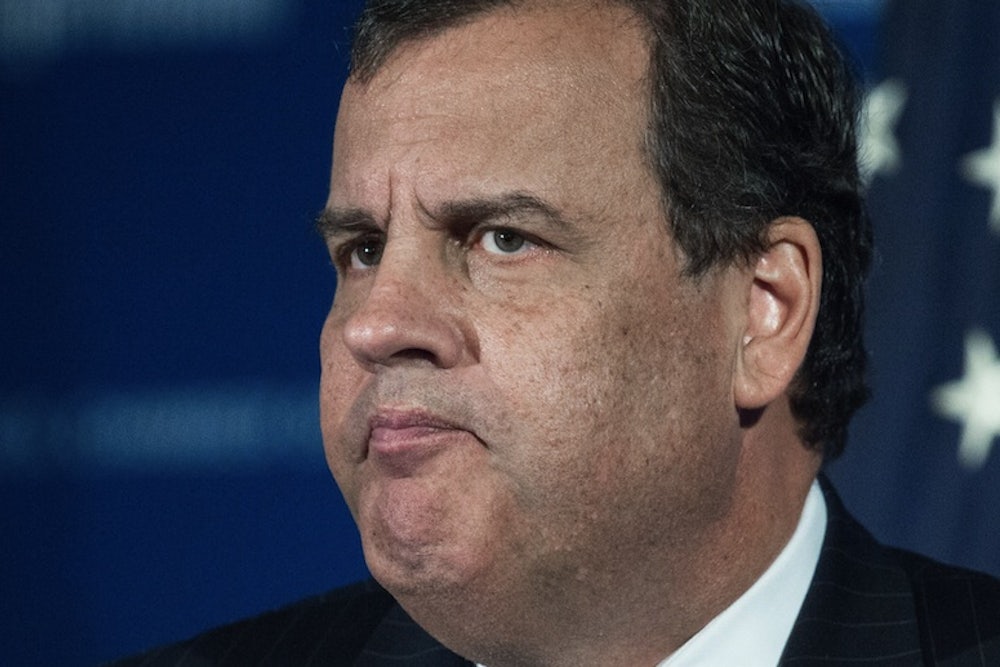The debate over how to treat returning health care workers and other people exposed to Ebola in West Africa stopped got a lot more real—and a lot more intense—over the weekend. Here’s a rough summary of what happened, in case you were watching football rather than Ebola News:
1. Late Friday, Governors Chris Christie and Andrew Cuomo announced a mandatory, 21-day quarantine for anybody arriving at JFK or Newark Airports after coming into contact with Ebola overseas. The impetus for the decision were revelations that Craig Spencer, a physician with Doctors Without Borders, had used the subway and gone bowling one day before developing a fever and, then, being diagnosed with Ebola. “A voluntary Ebola quarantine is not enough,” Cuomo said. “This is too serious a public health situation.”
2. Within hours of the announcement, a nurse returning from Sierra Leone became the first person subjected to the new requirement. After Kaci Hickox arrived at Newark Airport, officials transported her to a hospital in the city, where she’s been, ever since, in an isolation tent. She has no running toilet and no shower, and can communicate with visitors only through a plastic window in the tent. Hickox, who apparently has no fever and no symptoms, told media she felt her civil rights were being violated and eventually retained a lawyer.
3. Officials in the New York City were not happy about the new policy. If media reports are right, they found out about it the way most people did—that is, when the governors announced it. Federal officials at the White House, Centers for Disease Control, and National Institutes of Health had little, if any, more warning. But the treatment of Hickox provided an opening for them to push back. “This hero is coming back from the front, having done the right thing, was treated with disrespect was treated with a sense that she had done something wrong when she hadn't,” Mayor Bill DeBlasio said. “We owe her better than that."
4. Anthony Fauci, head of the National Institute of Allergies and Infectious Diseases, went on five Sunday shows to explain why quarantines were unnecessary: Patients, he reminded everybody, aren’t contagious before they are showing symptoms, which is why self-monitoring works—and why, almost certainly, Spencer didn’t give Ebola to anybody on the day before he got a fever.
5. Cuomo (Update: and then Christie) ended up modifying the quarantine order, allowing people to stay at home during the quarantine period and promising to take care of their needs, even if that meant replacing lost pay. Christie stood by his decision, with his usual bravado. “I absolutely have no second thoughts about this,” he said on Fox News.
Yes, it was quite the weekend. But when it was over, neither Cuomo nor Christie had answered why they thought the quarantine was necessary if non-symptomatic people don’t transmit the disease—or why they were ignoring the advice of so many public health experts who think the quarantine is a bad idea. As Charles van der Horst, an infectious disease specialist at the University of North Carolina, told me on Sunday, “If I want to work on my will, I don’t do it myself, I call an expert. Ditto for a haircut, etc. Why they decided they know more than public health experts is beyond me.”
Meanwhile, Hickox remains in her tent, at least as of this writing. Her presence could discourage health care workers from going overseas in the future. That would be tragic—and dangerous. It’s easy to forget, given the media coverage, but so far only one person has died of Ebola in the U.S. and the only two people who got the virus from him have both recovered. But, in West Africa, thousands are still dying and the epidemic is spreading to new countries. As I wrote on Friday, it’s hard to see how the Christie-Cuomo quarantine does much good—and easy to see how it could do harm.
—Jonathan Cohn
More news from the weekend:
2016: Hillary Clinton, appearing at a Massachusetts political rally, heaped effusive praise on Senator Elizabeth Warren for “giv[ing] it to those who deserve to get it.” But her comments about whether businesses create jobs drew fire from conservatives. (Maggie Haberman, Politico)
GUN VIOLENCE: A shooting at a high school near Seattle left two students dead, including the gunman. (Chelsea J. Carter, CNN)
HEALTH CARE: Physicians and hospitals are imposing new charges, directly to patients, in response to insurers squeezing their payments. (Elizabeth Rosenthal, New York Times)
Articles worth reading
Remember that lawsuit Boehner was filing over Obamacare? An independent assessment found that it has no merit. Almost nobody noticed it, but Simon Lazarus and Elizabeth Stein did. (Washington Monthly)
Riding the subway won’t give you ebola. But, Emily Badger reminds us, it might give you the flu, or TB. (Wonkblog)
Equal pay? Maybe not. According to a report from Restaurant Opportunities Center United, workers of color across the industry pay a "race tax" that amounts to 56 percent lower wages than white workers. (Ned Resnikoff, MSNBC)
China’s future is anyone’s guess. Neil Irwin splashes cold water on all those breathless reports about what a juggernaut China will be decades from now. According to a new working paper, he says, past success doesn’t mean we can just extrapolate China’s future. (The Upshot)
It takes two to tango. Jenee Desmond-Harris reminds us that it’s not okay that Americans continue to judge Monica more harshly than Bill, 15 years after the scandal. (Vox)
At QED
Jonathan Cohn tells the story of the doctor who helped save Nigeria from Ebola. Danny Vinik thinks up a cocktail in honor of Mitch McConnell and his evasions on Obamacare. And could Texas turn blue? John Judis thinks the answer is yes.
